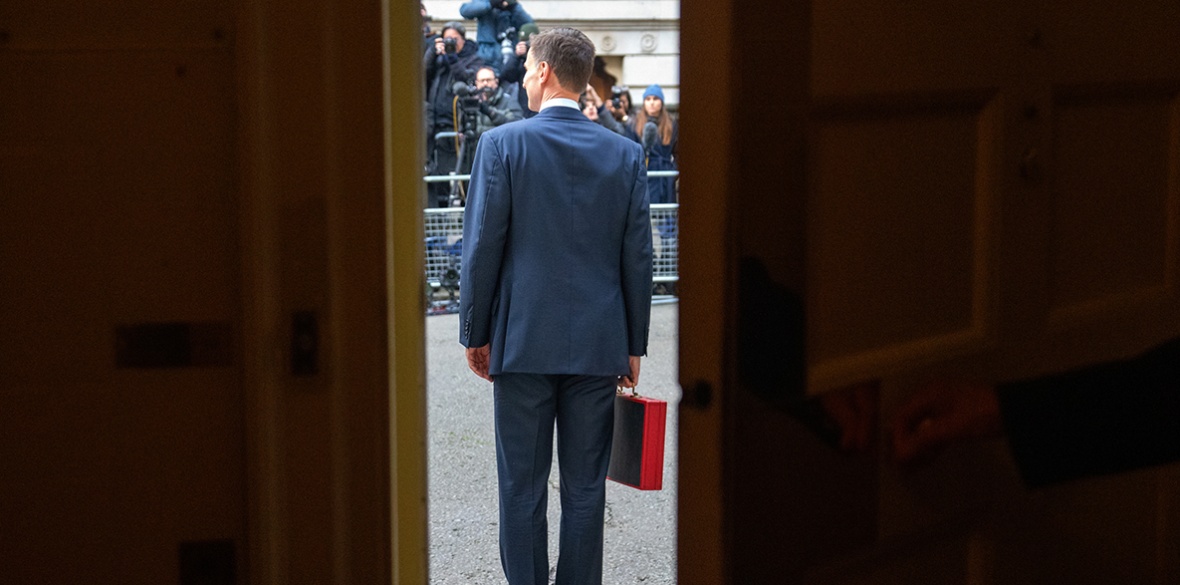This is the last article you can read this month
You can read more article this month
You can read more articles this month
Sorry your limit is up for this month
Reset on:
Please help support the Morning Star by subscribing here
PUBLIC services are at still greater risk as Chancellor Jeremy Hunt gambled the Tories’ election hopes on a last-ditch tax-cutting Budget.
Mr Hunt announced a 2 per cent cut in National Insurance in a bid to put more money in workers’ pockets before Britain goes to the polls later this year.
But the price will be a major squeeze in public spending in the next parliament, with many department budgets likely to fall in real terms.
The Chancellor also abolished the non-dom tax rule which lets the wealthiest avoid paying taxes on overseas earnings, a key Labour pledge, and brought more families within the scope of child benefit payments.
The Budget therefore leaves Labour more politically denuded than ever — it will either have to find other ways to raise the money it had planned for public services from scrapping the non-dom loophole, or more likely drop residual spending commitments altogether.
Labour leader Sir Keir Starmer told MPs that Labour supported the National Insurance cut too, leaving the parties exchanging rhetorical sound and fury on economic policy but with no significant differences.
Mr Hunt tried to square the public spending circle by pledging a drive to raise productivity throughout the public sector to enable him to cut taxes without slashing services.
But Unison general secretary Christina McAnea pointed out that public services “can barely cope” as it is.
She said: “Proper investment is what’s needed, not another dose of callous austerity or telling nurses, teaching assistants and care staff to work harder.”
Royal College of Nursing general secretary Pat Cullen said: “The Chancellor’s tax cut is enough to cover the student loans of NHS nurses for the next four decades.
“The public do not back his agenda — they want the health service turned around more than they support tax reduction.”
The Chancellor’s mantra today was “more investment, more jobs, higher growth and lower taxes” coupled with the repeated invocation of a “high skill, high wage economy not dependent on migration.”
But after 14 years in office, a renewed pledge of good times arriving sometime is unlikely to be sufficient to overcome the Conservatives’ present 20-point deficit in the opinion polls.
Independent expert Paul Johnson of the Institute for Fiscal Studies confirmed that Mr Hunt’s plans would likely mean public-sector misery down the line.
“Those plans still look devilishly difficult to deliver,” he said.
“Sticking to them would require cuts to unprotected services of around 3.3 per cent per year.”
With his few remaining political foxes shot, the Labour leader could only claim that the Tory U-turn on non-dom taxation represented “another intellectual triumph for social democracy” before pledging “calmer, less chaotic politics” as if that was the problem.
He even repeated the tired economic illiteracy that “the national credit card is maxed out.”
TUC general secretary Paul Nowak labelled the budget a “political con trick — giving with one hand while taking with another.
“No-one wants tax cuts at the expense of their local services.
“We need a proper long-term plan to raise wages for everyone and restore public services.”
James Harrison, of the Institute of Employment Rights (IER), also warned tax cuts will only hit public services even more.
He said: “Today’s cut in National Insurance is a cynical attempt to divert attention away from the government’s strangulation of public services and workers’ rights.
“Working families need more money in their pockets, but not at the expense of services that so many low-paid workers rely on, and the health service that is already chronically underfunded.
“Cutting NI means more austerity and an even bigger squeeze on services when we should be asking those with the broadest shoulders to take on a fairer share of the tax burden.
“Instead of constricting public services and using the law to crush the rights of workers and their trade unions, what we need is a new deal for workers.
“A level playing field on workers’ rights would stop bad employers undermining the good ones, and would provide a framework for empowering workers, putting more money in their pockets, and jump-starting the economy for future generations.”
And Communist Party general secretary Rob Griffiths said that while Mr Hunt had “scattered some sweeties before the electorate in the hope of saving Tory skins at the forthcoming general election, his further cut in employee National Insurance contributions will benefit higher earners the most.
“Unfreezing tax thresholds would have targeted NI savings wholly in favour of the low paid.”









